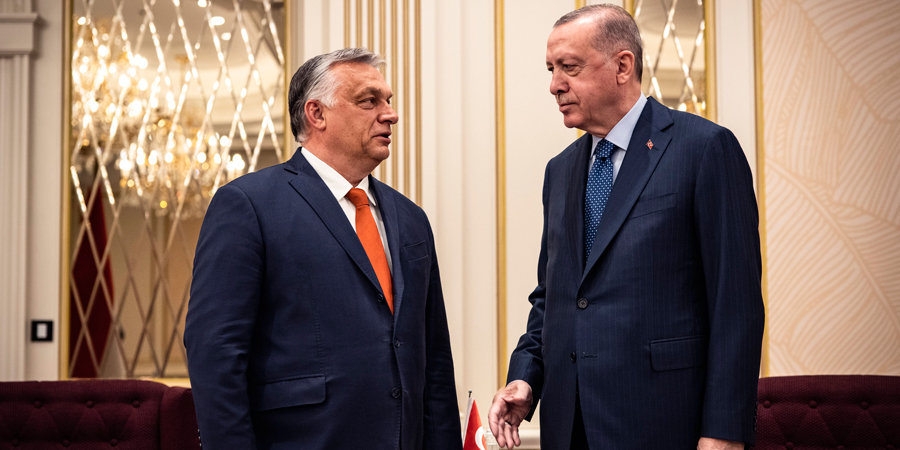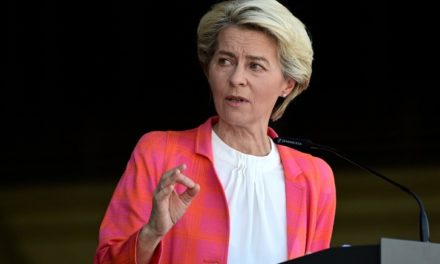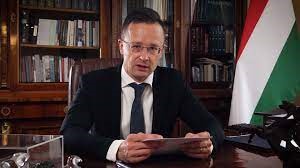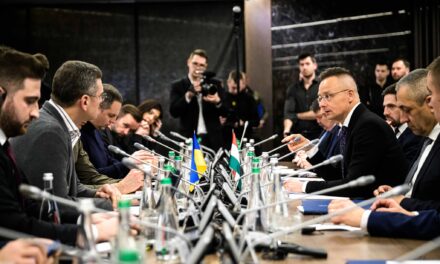Prime Minister Viktor Orbán arrived in Turkey on Wednesday evening to preside over the fifth meeting of the Hungarian-Turkish High-Level Strategic Cooperation Council with Turkish President Recep Tayyip Erdoğan for the first time in Ankara. The Prime Minister will then hold talks with his partners in Istanbul at the summit of the Council of Turkic-Speaking States.
Hungarian involvement in the Turkish Council dates back to the 2010s, when the government launched the policy of opening to the east. The essence of this was that the country should not give up the EU or Western-weighted economic policy and foreign policy, but build a strong position in our eastern neighborhood, especially economically - Zoltán Egeresi, from the National Public Service University (NKE), outlined the background of Turkish-Hungarian relations when asked by our newspaper ) is an expert at the Strategic Defense Research Institute. He added: a very important part of the program was the improvement of political relations, especially in the case of the Turkic peoples, since the Kyrgyz, but especially the Turks and Kazakhs, have a stronger sense of brotherhood with the Hungarians.
"Many Turks believe that Hungarians belong to the Turkish people, some Kazakhs also think the same way, where there is a tribe called "Magyars", he pointed out.
The success of the development of relations between the Turkic countries and Hungary is indicated by the fact that Hungarian embassies have been opened in most of the Central Asian states in recent years, for example in Uzbekistan and Kyrgyzstan, and investment opportunities are also expanding for domestic companies. When analyzing Hungarian-Turkish relations, we cannot forget the historical past either: although the Ottoman Empire occupied Hungarian territories for one hundred and fifty years, we already fought together with the Turks during the First World War, and since Hungary joined NATO we are back in an alliance system. Zoltán Egeresi said that the Ottoman Empire and later Turkey played a positive role for our country in several cases, as they accepted several Hungarians, for example the refugees of 1956, but Ferenc Rákóczi died in Rodosto, Turkey in 1735, and Lajos Kossuth also lived in the Ottoman Empire for a while.
- The current conditions are no longer defined by these one hundred and fifty years, pragmatic political cooperation is taking place on the part of the two parties - he added.
One of the main items on the agenda of Viktor Orbán's meeting in Ankara will be an overview of the relations between Hungary and Turkey, and the parties will also discuss current regional and international developments.
"The meeting confirms the common goal of deepening our bilateral relations with our strategic partner and ally, Hungary, as well as strengthening our cooperation in the field of multilateral relations, especially in NATO, the European Union and the Turkic Council," the announcement detailed the goals of the meetings. . According to the announcement, the parties will sign various agreements and protocols to strengthen bilateral relations. Bertalan Havasi, head of the Prime Minister's Press Office, informed MTI yesterday that several ministers will participate in the events as members of the Hungarian delegation: Minister of National Defense Tibor Benkő, Minister of Human Resources Miklós Kásler, Minister for Families Katalin Novák, Minister of the Interior Sándor Pintér, Minister of Innovation and Technology László Palkovics and Minister of Foreign Trade and Foreign Affairs Péter Szijjártó will accompany Viktor Orbán on his trip to Turkey. Military industry cooperation and Turkey's inevitable role in migration will probably be topics.
Source: magyarnemzet.hu
Image: MTI/Prime Minister's Press Office/Zoltán Fischer (previous recording)












